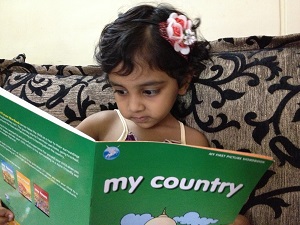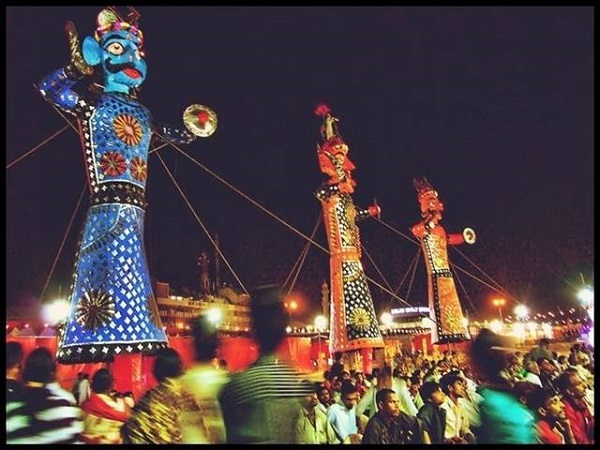Our traditions are fading in the face of our own hazy recollection of them. What do we teach our children?
 by Dr Pooja Birwatkar
by Dr Pooja Birwatkar
The festive season is well and truly upon us, and while basking in it, I decided it was high time I helped my son brush up on his cultural knowledge.
Thanks to Shahrukh Khan, my child knows about Ravan, though he hasn’t heard of Ravan from the Ramayana. Realising that he had learnt a different version of Ravan prompted me, like many other moms, to attempt to undo the damage by telling him about the characters of our great ancient epics.
But I slowly realised that the road to enlightenment was full of hurdles. For one, I myself remembered only a very sketchy outline of the Ramayana. It really shook me up, and all my claims of being connected to my culture now lay about me in tatters. After a few days of heavy thinking, I managed to put my jumbled version into the right pieces, but I was still far from the real picture.
After this fiasco, I did not have the courage to attempt the retelling of the Mahabharata, which is even more complex than the Ramayana with its vastness and unending series of characters.
How did this happen? Have our lifestyles really started to take a toll on our traditions and cultures, which are slowly fading away without us even realising it? Even when we understand that we are doing very less to preserve our culture, we shrug off responsibility and excuse ourselves in the pretext of modernisation, liberated thoughts, paucity of time and daily stresses.
After becoming a parent I realised that I would impart the same ethics and sow seeds of all the beliefs and traditions which, once upon a time, I had resented as a child. Don’t we all try to mirror the parenting styles of our parents, and try to inculcate the same values in our children? Sure, all our parents’ values never become a part of our personalities, but we remember all of them and try to pass them on to the next generations. We may never have actively participated in trying to keep our culture alive, but when it comes to our children, we want our children to adopt our culture in its entirety.
parenting styles of our parents, and try to inculcate the same values in our children? Sure, all our parents’ values never become a part of our personalities, but we remember all of them and try to pass them on to the next generations. We may never have actively participated in trying to keep our culture alive, but when it comes to our children, we want our children to adopt our culture in its entirety.
Dussera reminds me of my sweet childhood, when listening to our epics during story sessions with parents and grandparents were one of our biggest pastimes. Children today are smart enough to tell you that they know that Santa Claus doesn’t actually come to their house on Christmas eve and their parents buy the gifts. As children, even we knew this about Santa Claus, but we were so rapt in our fairytale worlds that we willingly ignored what our minds cautioned us. We have grown up calling a sleepyhead ‘Kumbhakaran’ or a witty person ‘Birbal’. But our children have never heard of these hallowed personalities, which is the biggest tragedy of their lives.
Whatever age you are, the sight of the burning Ravan effigy with firecrackers exploding in the background never fails to enchant us and remind us that good always wins over evil. We try to teach our children about the many evils they will encounter, while also quietly reminding ourselves that we too, will slay the Ravans in our lives.
It is definitely not an easy task in Mumbai to go see the burning Ravan. The Mumbai gardi discourages us. So we content ourselves by going to malls and eating out. And while all that is good, does this mean that the future generations will never get a taste of what we experienced in our childhood?
A popular management saying goes, ‘Don’t tell us the problem, tell us the solution’. For starters, we could organise our own Ravan burning in our building societies. Involve the children to make Ravan and his brothers’ cutouts and collectively burn them. Plan to make it a community function. Have some sessions where an elder recounts our traditions and the stories behind them. Plan it the way you want, just don’t let the festival pass you by as just another holiday.
I think we owe this to our future generations. Do you?
(Pictures courtesy www.postmygreetings.com, www.princessliya.com. Images are used for representational purpose only)





